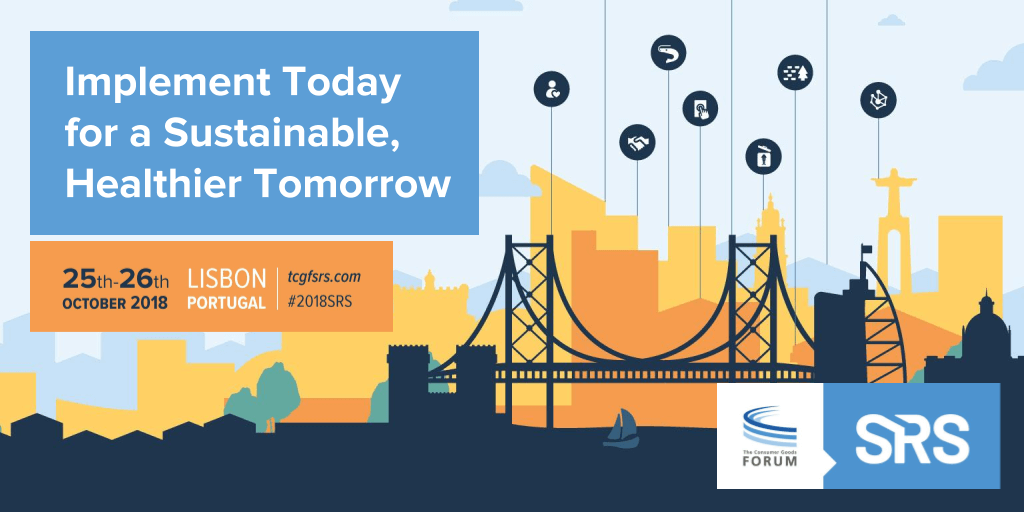Transparency is widely acknowledged as a critical factor in building consumer trust in a company or brand. And there is a great deal of data demonstrating that trust leads to sales growth. So, transparency has become something of a buzzword these days in the consumer industry. But it can mean many different things depending on the context.
In The Consumer Goods Forum, we focus particularly on product transparency – by which we mean giving consumers and value chain partners easy access to reliable information on everything they want to know about a product and its supply chain. We also encourage corporate transparency – engaging with consumers and other stakeholders on the issues that concern them about your company, no matter how sensitive they may be.
Product transparency
If you dig into which particular aspects of a product drive trust and sales growth, you tend to come up with lists of attributes that broadly relate to sustainability, such as: ingredients and origin, safety and health, environment and human rights. But the industry is still a long way from being able to provide these attributes reliably to consumers; some estimates suggest that today at least 50% of product data is either missing or inaccurate.
The problem – once relegated to company technical functions – is now an urgent, CEO-level issue, ranking as one of the top three on the CGF’s Board of Directors’ agenda in its June 2018 meeting.
Companies face numerous technical and operational challenges in getting reliable information in the first place, in exchanging it efficiently between value chain partners and in giving consumers easy access to it. This is where the CGF has a critical role to play. Full product transparency requires collaboration between many different companies in the global supply chain – retailers, manufacturers, upstream suppliers, and a wide range of service providers.
So, the CGF’s members are working together in each of our strategic Pillars to address different aspects of the problem. For example:
- The Sustainability Pillar is working to ensure that supply chain standards fully address the top issues, like those of deforestation, food and solid waste and forced labour.
- The Global Food Safety Initiative and the new Sustainable Supply Chain initiative are working to improve and harmonise supply chain compliance standards respectively for food safety and social and environmental sustainability
- The Non-Food Safety initiative is focusing on increasing transparency on the ingredients used in cosmetics and personal care products
- The Health & Wellness Pillar’s Collaboration for Healthier Lives initiative emphasises the importance of better product information in empowering consumers to make healthier choices
- The End-to-End Value Chain Pillar’s Data Leapfrog initiative encourages the use of new technologies such as machine learning to improve the accuracy and completeness of product data. Its agenda also includes promoting the global rollout of digital consumer transparency solutions that give people access to product data organised in a simple, consistent way.
Corporate transparency
While each member company will have its own strategy for greater corporate transparency, the CGF supports them through collaborative, industry-wide engagement with the outside world. For example:
- Stakeholder engagement: the CGF engages directly with a wide range of external stakeholders, including consumer organisations, national governments, multilaterals and NGOs.
- Measurement and reporting: periodic reports such as the CGF’s Health & Wellness Progress Report provide updates to the outside world on progress against our Resolutions and Commitments.
- Case studies: our company case studies help to explain how the industry is working to drive positive change, on issues such as health, refrigeration, food waste and forced labour.

This October, The Consumer Goods Forum’s Sustainable Retail Summit will further explore the practical aspects of implementing greater transparency. Last year’s Summit featured a variety of contributions on the role of investors in corporate transparency, the increasing importance of technology to reporting and tracking, as well as consumer goods companies’ efforts to tackle food waste. Networking and collaboration are vital parts of the learning and implementation process for FMCG businesses, and these events are crucial in constructing a more transparent and sustainable consumer goods industry.
To conclude, it is clear that transparency, trust and sustainability are now intrinsically linked. In order to thrive and grow in the future, consumer companies must communicate honestly with their consumers, and demonstrate to them that sustainability lies at the heart of the business.
The Consumer Goods Forum’s Sustainable Retail Summit takes place on 25th-26th October in Lisbon.
This post was written and contributed by:
Peter Freedman
Managing Director
The Consumer Goods Forum

